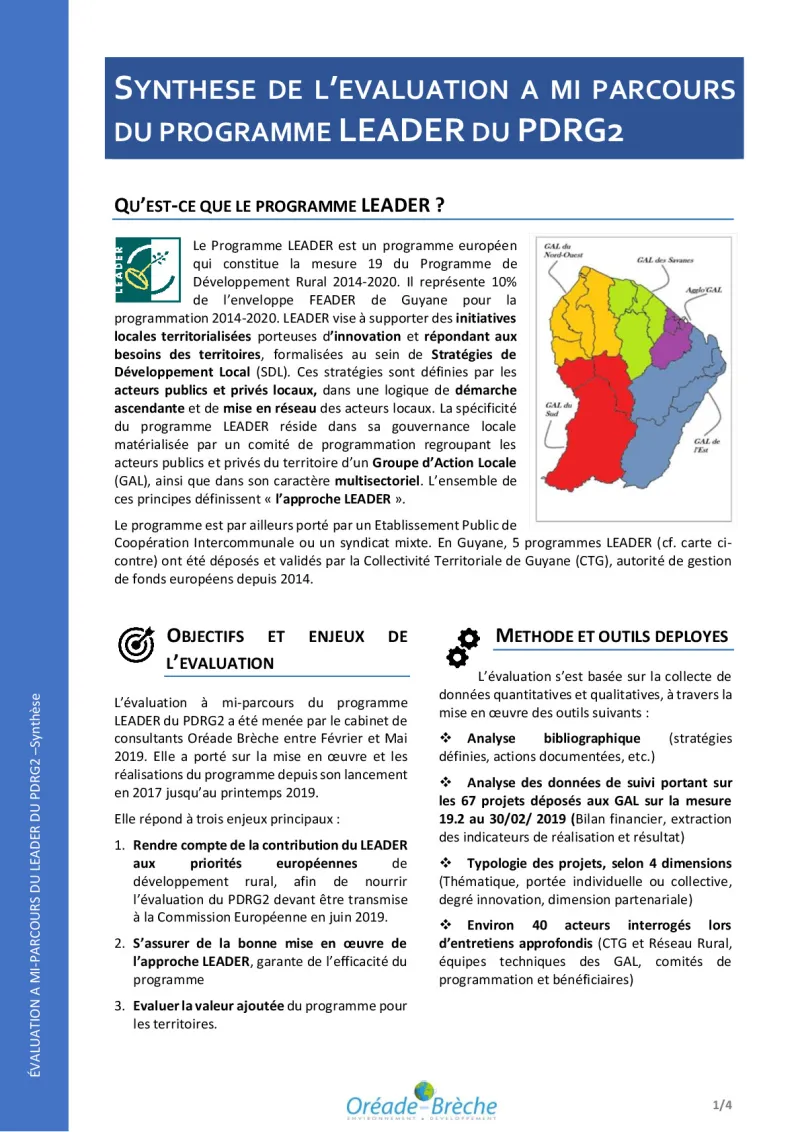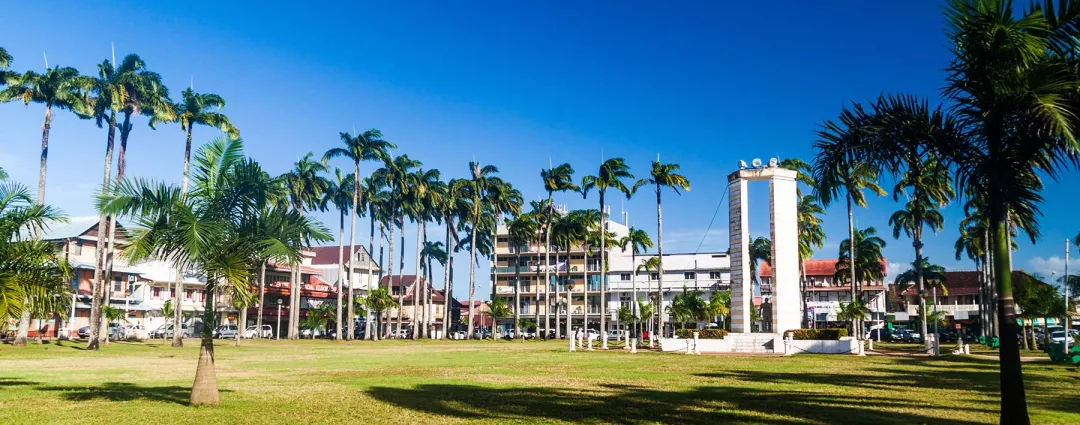Mid-term evaluation of the LEADER programme of the RDP in French Guiana
The report evaluates the LEADER’s contribution to European rural development priorities, assesses the added value of the programme and ensures the successful implementation of the LEADER approach.
- France
- 2014-2022
- Cross-cutting impacts


The mid-term evaluation of the LEADER programme of the Rural Developmemt Programme (RDP) of French Guiana, published in 2019, focuses on the implementation and achievements of the programme from its launch in 2017 until spring 2019.
The evaluation addresses three main challenges. First, a report on LEADER’s contribution to European rural development priorities that feeds into the evaluation of the RDP, which was sent to the European Commission in June 2019. Secondly, ensure the successful implementation of the LEADER approach, which guarantees the effectiveness of the programme. Lastly, assess the added value of the programme among French Guiana territory.
The evaluation is based on the collection of quantitative and qualitative data, through the implementation of a literature review, and analysis of monitoring data on the 67 projects submitted to LAGs on Measure 19.2 to 30/02/2019. Moreover, approximately 40 in-depth interviews have been addressed to the Territorial Collectivity of French Guyana (TCG) and Rural Network, LAG technical teams, programming committees and beneficiaries.
Tha main conclusions describe that the implementation of public/private governance is more or less balanced, according to the Local Action Groups (LAGs). It depends mainly on the involvement and experience of the programming committees, which remain to be consolidated in some LAGs.
All the projects submitted are relevant to the strategic objectives set by the LAGs in their Local Development Strategy. However, some areas of intervention are not yet implemented or fully covered.
In addition, the LAGs’ field of intervention is very broad, which contradicts national and European recommendations that advocate for focusing LEADER programmes on one or two issues to concentrate the effects of the programme and avoid scattered funding.
The programme has enabled the development of a network of actors made up of members of the programming committees. However, the networking target is not met for project promoters. As a result, few projects are partnership-based or multi-sectoral.
In addition, the animation developed by LAGs facilitates access to support, especially for project promoters whose activities are small or not formalised.
Overall, the programme has played a mixed role in stimulating innovation. The programme has supported projects in bringing some new concepts. However, the projects submitted are mostly intended to complement the local offer on traditional activities.
The time taken to compile files and the processing times were often very long during the first part of the programming. These deadlines may put project promoters at risk and undermine the programme. Measures have been taken by the Territorial Collectivity of French Guiana to reduce these delays in the second half of the programming period.
There are first interesting examples of collaboration between LEADER and the regional territorial development support scheme. This cooperation makes it possible to direct project promoters to the various measures (including LEADER) and to relieve those in charge of certain administrative support tasks, thus giving them greater availability for local animation.
In conclusion, the study provides a series of recommendations on the following aspects:
- ensuring the continuity of support for project promoters;
- ensuring territorial leadership around networking and innovation (strengthening the LEADER principles);
- strengthening the link between policies and financing arrangements; and
- consolidating cooperation practices at all levels.
Author(s)
Oréade Brèche